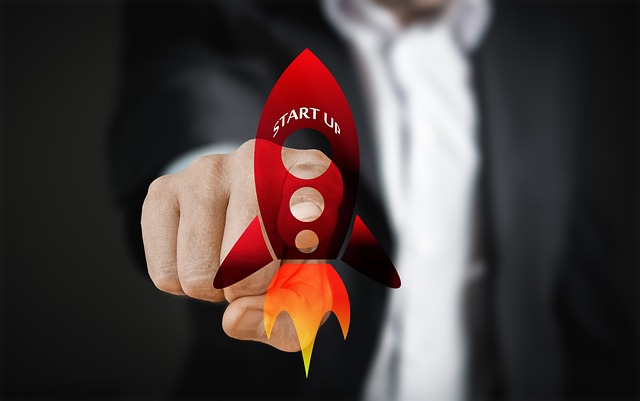Crowdfunding has transformed how entrepreneurs validate their business ideas before market entry, democratizing access to capital and enabling pre-market testing through real-world feedback from potential customers. By choosing the right platform (like Kickstarter or Indiegogo) based on target audience, funding goal, and product type, creators can gauge market interest, refine offerings, and build connections with future customers. Effective crowdfunding campaigns involve robust business idea validation strategies, including market research, captivating messaging, social media engagement, and user-generated content. Success stories like Oculus Rift's highlight crowdfunding's ability to create buzz, drive demand, and guide product development based on consumer feedback, saving resources and ensuring aligned business ideas with market needs.
Crowdfunding has emerged as a powerful tool, offering entrepreneurs an unprecedented route to pre-market product validation. This article delves into the transformative potential of crowdfunding in accelerating product development. We explore its role in testing business ideas, analyzing benefits, and guiding you through choosing the right platform.
Learn successful strategies for campaign launches and be inspired by real-world stories highlighting how crowdfunding has transformed innovative concepts into thriving businesses, all while effectively validating business idea validation.
- Understanding Crowdfunding: A Gateway to Market Validation
- The Role of Pre-Market Testing in Product Development
- Benefits of Crowdfunding for Business Idea Validation
- Choosing the Right Crowdfunding Platform for Your Needs
- Strategies for Successful Campaign Launch and Marketing
- Real-World Success Stories: How Crowdfunding Transformed Ideas
Understanding Crowdfunding: A Gateway to Market Validation

Crowdfunding has emerged as a powerful tool for entrepreneurs, offering a unique avenue for business idea validation before full-scale market entry. This collective funding approach allows inventors and startups to test their concepts, gather valuable feedback from potential customers, and gauge market demand. By launching a crowdfunding campaign, businesses can create buzz around their product or service, attract early adopters, and validate their business model.
In the initial stages of product development, crowdfunding provides an accessible platform for entrepreneurs to seek investment without traditional gatekeepers like banks or venture capitalists. It democratizes access to capital, enabling creators to connect directly with a global audience. Through this process, they can refine their offerings, understand consumer preferences, and make data-driven decisions, ensuring their business idea aligns with market needs.
The Role of Pre-Market Testing in Product Development

Pre-market testing plays a pivotal role in product development, acting as a bridge between concept and launch. By gathering real-world feedback from potential customers before investing heavily in production, businesses can validate their business idea validation and make informed decisions about product enhancements or pivoting entirely. This early stage evaluation isn’t just about identifying flaws; it’s also about understanding market demands, pinpointing features that resonate with consumers, and building a product that stands out in a crowded marketplace.
Crowdfunding platforms serve as an ideal testing ground, offering direct access to a diverse audience. Through campaign funding goals, pre-orders, and community feedback, entrepreneurs can gauge interest levels, refine their offerings, and create products tailored to meet actual customer needs. This not only ensures that the final product is more likely to succeed in the market but also fosters a stronger connection between creators and their future customer base.
Benefits of Crowdfunding for Business Idea Validation

Crowdfunding offers a powerful platform for entrepreneurs and inventors looking to validate their business ideas in a cost-effective manner. By tapping into a global community, creators can gauge market interest and receive valuable feedback on their products or services before investing significant resources. This early validation process is crucial, as it helps refine the offering, ensuring it aligns with consumer needs and desires.
The benefits are multifaceted: it provides a real-world test of concept, allows for user engagement and interaction, and offers insights into potential customer demographics. Moreover, crowdfunding enables businesses to validate their business idea validation through pre-orders and pledges, indicating market demand and fostering a sense of community around the product launch. This early adoption can be instrumental in shaping successful marketing strategies and building momentum ahead of an official release.
Choosing the Right Crowdfunding Platform for Your Needs

Choosing the right crowdfunding platform is a pivotal step in validating your business idea before market launch. Factors like your target audience, funding goal, and type of product play a crucial role in selecting the ideal platform. Some platforms specialize in tech innovations, while others cater to creative projects or social causes. For instance, Kickstarter is renowned for funding unique and innovative products, making it perfect for entrepreneurs with groundbreaking business ideas. In contrast, Indiegogo offers more flexibility in terms of project types, appealing to a broader range of businesses.
Thoroughly researching platforms to match your specific needs ensures you gain access to the right community of potential backers. This strategic choice increases the likelihood of successful campaign funding and valuable feedback from early adopters, providing essential insights for refining your business idea before official market entry.
Strategies for Successful Campaign Launch and Marketing

To ensure a successful crowdfunding campaign for product validation, founders should first clearly define their business idea validation strategies. This involves thoroughly researching and understanding target markets, identifying pain points that the product addresses, and creating compelling messaging that resonates with potential backers. Utilizing pre-launch teasers, building anticipation through social media engagement, and offering early bird incentives can generate buzz and attract initial supporters.
Marketing plays a pivotal role in a crowdfunding campaign’s success. Leveraging email lists, influencer partnerships, and targeted online ads helps reach a wider audience. Integrating user-generated content, showcasing product prototypes or demos, and highlighting real-world applications further strengthens the case for the product. Regular updates throughout the campaign, maintaining transparency, and fostering community engagement are essential to building trust and keeping backers invested in the project’s success.
Real-World Success Stories: How Crowdfunding Transformed Ideas

In the world of startups and innovation, crowdfunding has emerged as a powerful tool for one of the most vital steps in any business journey—idea validation. This collective funding approach allows entrepreneurs to transform their creative visions into tangible realities by gauging market interest early on. A simple concept, yet its impact is profound; it provides a direct line of communication between inventors and potential customers, ensuring that resources are allocated only if there’s genuine demand.
Numerous success stories attest to this method’s effectiveness. For instance, the iconic crowdfunding campaign for the Oculus Rift VR headset not only secured funding but also generated a buzz around virtual reality, ultimately leading to its successful launch and market dominance. Similarly, many tech startups have leveraged crowdfunding to refine their products based on direct feedback from backers, ensuring that their final offerings align with consumer expectations. This real-world validation is invaluable, as it saves time, effort, and financial resources that could otherwise be wasted on unyielding business ideas.






